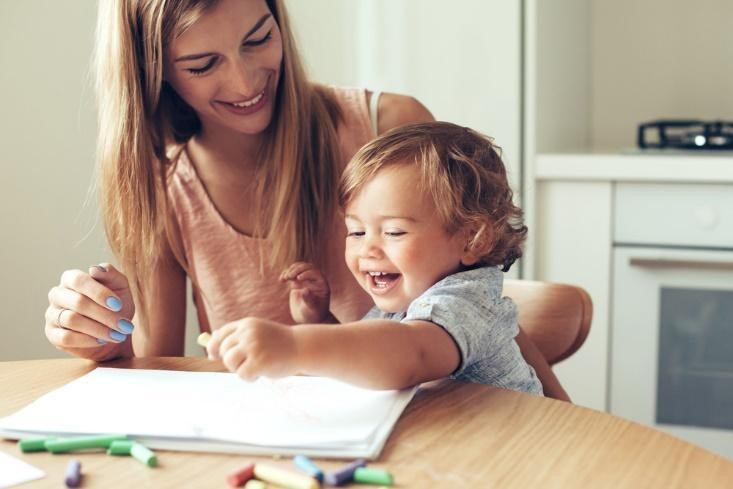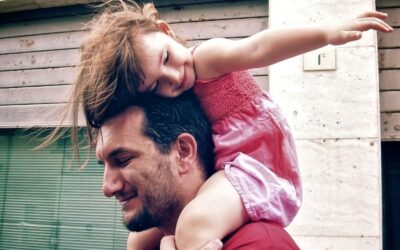Your daily interactions provide unlimited opportunities for teaching your child about life
Life is the best teacher. From the moment your baby is born, they are searching for meaning in even the most ordinary experiences – and finding it.
Children gather knowledge from the people around them, the tasks and trials they face, the conversations and stories they hear, and their successes, failures, accomplishments, and losses.
As a parent, you are your child’s chaperone, navigator, coach, and tour guide through the educational journey of life. Support your child’s learning daily by providing support and encouraging curiosity as a part of regular life.
Teachable moments
Learning doesn’t have to require formal lessons and structured outings. Teaching your child the important things in life requires the perspective that learning opportunities exist everywhere, all of the time. The way you interact with your child and environment each day can help support their social, emotional, and intellectual growth and development. Keep the following in mind to help your child learn what they need to know to succeed in life.
Communication
Babies begin learning about communication from day one. The most important thing you can do to help foster an understanding of language and dialog is to talk to your baby often – well before they can understand or reply. Hold your baby close and make eye contact as you speak in gentle tones. Respond to their cries so that they develop trust and a sense of the reciprocal nature of verbalization. When your baby begins to coo and make sounds, repeat the sounds back to them or respond with expression and enthusiasm.
Starting from an early age, narrate your day and surroundings. As your baby grows into a toddler, ask for their opinions and listen with interest – even if you don’t quite understand what is being said. As their language skills develop, trust that the rambling conversations about their favorite cartoon character serve a greater purpose, and play along with interest.
Thinking skills
Babies and toddlers learn how the world works through exploration. Even something as simple as stacking up blocks until they fall down is an important lesson in cause and effect. Encourage your child to use toys in different ways, such as lining them up, banging them together, pushing them down, or pretending they are something else.
You can also help your young child learn by pointing things out during everyday activities. For instance, the fact that things sink or float during bath time, or how to pour water from one container into another. Follow their lead by using their interests to answer questions they may not know they have. As your child grows old enough to verbalize, ask them questions about what they think will happen, how they think someone feels, or what they should do to solve a problem.
Confidence
Another thing your child is learning is their own identity. They need to know that they are special, capable, smart, loved, and respected. Confidence is the key to resilience and developing a willingness to step outside of their comfort zone. Make sure your child knows what you like about them, and comment on accomplishments big and small. Seek out opportunities to praise your child often.
An important aspect of confidence is independence. If you’re always stepping in to fix things, you’re denying your child problem-solving practice. When you see your child struggling, stand back and let them try before providing some gentle verbal cues. Your job is to create a supportive environment to try, fail, and try again. Encourage this ability by trusting your child with small tasks, like pouring their own glass of milk. Stay positive if they need continued practice; it’s an important part of teaching perseverance.
Self-control
Learning how to regulate actions and feelings is an essential part of life, and an important skill to learn in early childhood. Learning how to share, wait, and work collaboratively with friends is a crucial component of social-emotional development.
Actively work at teaching your child about emotions. It’s impossible to communicate what you’re feeling when you don’t have the understanding or vocabulary to do so. Acknowledge their feelings out loud, point out the emotions being experienced by characters in shows and stories, and talk about your own feelings.
Also, give older toddlers a choice to help them feel as if they have some control over their situation and environment. “Would you like to go to the library before or after lunch?” ensures that they understand they will be going to the library, and gives them an understanding of the time frame involved.
Last but certainly not least, stay calm and patient when your toddler is misbehaving. Exhibiting self-control is the most effective way to teach it. Your child is always watching you for clues.
The relationship you have with your child is how they develop an understanding of what to expect from others. Communicate openly and often, encourage curiosity and confidence, and teach them about their emotions and appropriate behavior to give them a solid foundation to explore the world and learn independently. The Virginia Infant & Toddler Specialist Network helps improve the quality of care for infants and toddlers through extensive resources, services, and education for caregivers. Learn more about how we can help you improve the standard of care.




